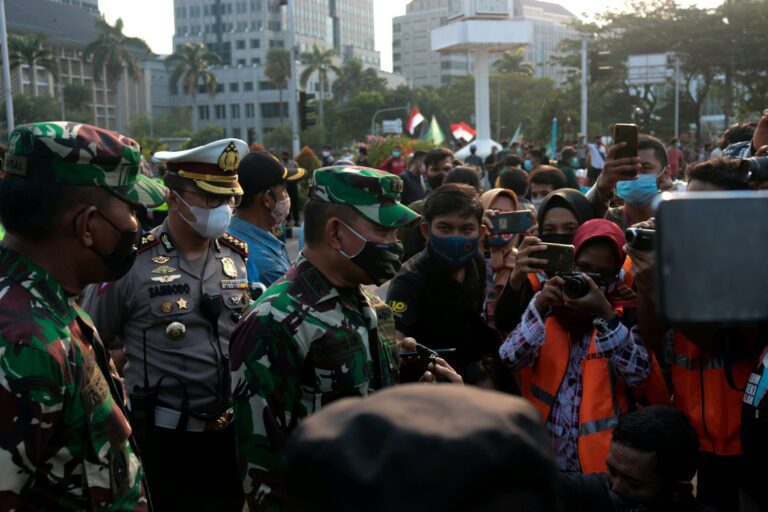Protests have gripped Indonesia since February 17, 2025, sparked by newly passed legislation that significantly enhances the role of the military in civilian governance. The law, which grants military officials broader powers within key government positions, has ignited widespread opposition, particularly from student unions, human rights organizations, and various civil society groups. These groups argue that the reforms undermine democracy, risking the return of an authoritarian regime.
The protests began in Jakarta but quickly spread to other cities, with tens of thousands of people participating in mass demonstrations. The protesters are calling for the repeal of the law and for a return to a more transparent and accountable government structure. Many are concerned that the military’s increased involvement in civil affairs could threaten freedoms and civil rights, reminiscent of the authoritarian era under former President Suharto, who ruled Indonesia for over three decades.
The new law allows military personnel to occupy strategic civilian positions, such as in the police, public administration, and even the judiciary. Proponents of the law argue that this will improve national security and ensure greater stability in governance. However, critics assert that it could lead to abuses of power, with the military potentially wielding undue influence over political decisions and bypassing democratic norms.
The government’s response to the protests has been swift and forceful. Security forces have been deployed to quash dissent, resulting in violent clashes between protesters and police. Reports from human rights groups indicate that many demonstrators have been injured, and dozens have been arrested for their participation in the protests. In some areas, the military has been called in to assist police in managing the crowds, raising further concerns about the militarization of public order.
Internationally, the Indonesian government has come under intense scrutiny. Foreign governments and international organizations have expressed concern over the rising number of arrests and the violent suppression of peaceful protests. Calls for an independent investigation into the treatment of detainees have been made by human rights advocates, who are also urging the Indonesian authorities to respect the right to free speech and peaceful assembly.
Indonesia’s political future now hangs in the balance as the protests continue. As civil society and political opposition groups continue to rally against the military law reforms, the government faces increasing pressure to find a peaceful resolution to the crisis. Whether the protests will result in the repeal of the controversial law or lead to more significant political change remains to be seen.


